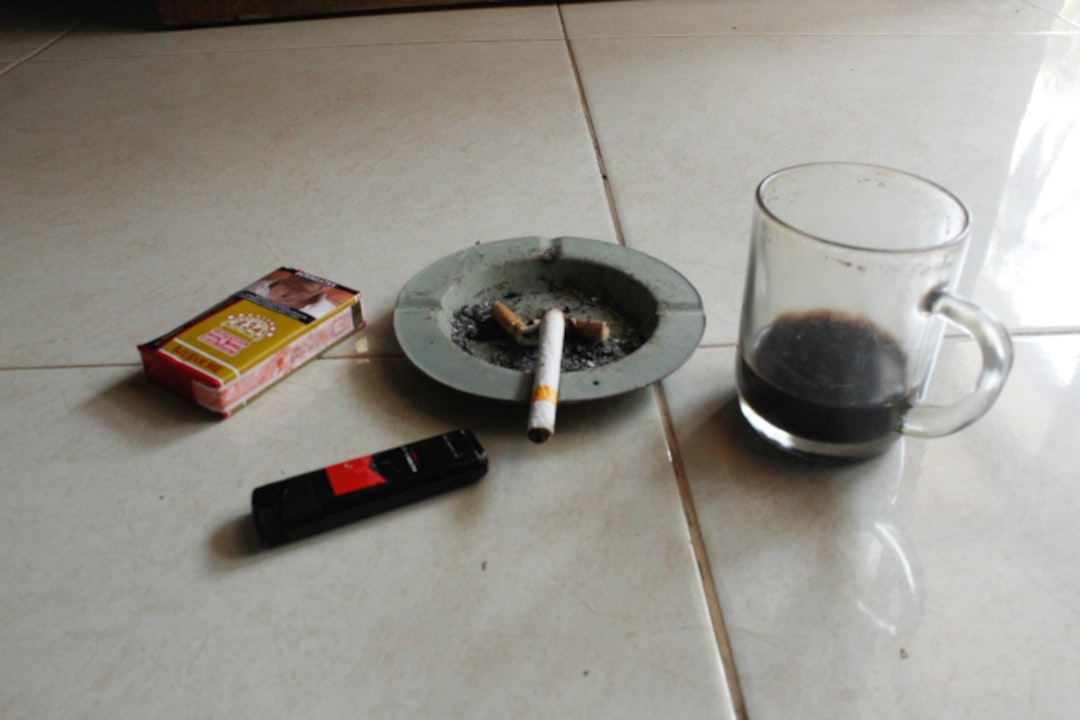We’ve all been there, haven’t we? That nagging feeling of wanting to change something about ourselves, a habit that just won’t quit. Whether it’s endless scrolling, that extra snack, or putting off important tasks, bad habits can feel incredibly ingrained. But what if I told you that understanding the psychology behind these behaviors is your superpower for breaking free? Today, we’re going to explore the cutting-edge psychological approaches that can help you finally conquer those unwanted habits and build a more intentional life. Let’s get started! 😊
Understanding the Habit Loop: The Science Behind Our Actions 🤔
Before we can break a habit, we need to understand how it works. Most habits operate on what’s known as the “habit loop,” a concept popularized by Charles Duhigg. This loop consists of three key components: a cue (trigger), a routine (the habit itself), and a reward. For instance, feeling stressed (cue) might lead you to check social media (routine) for a temporary distraction (reward).
Recent neuroscientific findings from Stanford in mid-2024 further illuminate this, showing that strengthening prefrontal cortex activity through specific cognitive exercises can enhance inhibitory control, making it easier to resist habitual urges. This means our brains are more adaptable than we once thought, and we can actively work to rewire these loops.
A 2024 survey by the American Psychological Association found that 72% of individuals attempting to break a bad habit reported that identifying and replacing the “reward” aspect of the habit loop was a key factor in their success. Focus on what you’re truly seeking from the habit!
Psychological Frameworks for Lasting Habit Change 📊
Breaking habits isn’t just about willpower; it’s about employing smart psychological strategies. Here are some of the most effective approaches:
- Cognitive Behavioral Therapy (CBT): CBT remains a gold standard, with studies showing an average success rate of 60-70% in reducing unwanted behaviors over a 6-month period when consistently applied. A review published in “Clinical Psychology Review” in early 2025 reaffirmed CBT’s effectiveness, emphasizing its structured approach to identifying cognitive distortions and behavioral patterns. It helps you identify triggers, challenge negative thought patterns, and develop alternative, healthier responses.
- Mindfulness: Research from the Journal of Behavioral Psychology (early 2025) indicates that combining mindfulness practices with goal-setting significantly boosts long-term habit change success rates by up to 30% compared to goal-setting alone. Mindfulness helps you become more aware of your urges without judgment, creating a space to choose your response rather than automatically reacting. Mindfulness-Based Stress Reduction (MBSR) programs are increasingly being adapted for habit cessation, showing promising results in reducing cravings and impulsive behaviors.
- Identity-Based Habits: This approach, popularized by James Clear, emphasizes changing your self-perception. Instead of saying “I’m trying to quit smoking,” you’d say “I am a non-smoker.” This shift in identity is crucial for lasting change and is supported by recent meta-analyses from 2023-2024.
Comparing Psychological Approaches to Habit Breaking
| Approach | Key Principle | Benefit | Best For |
|---|---|---|---|
| CBT (Cognitive Behavioral Therapy) | Identifying and changing thought patterns and behaviors. | Structured, evidence-based, high success rates. | Specific, well-defined habits (e.g., smoking, overeating). |
| Mindfulness | Cultivating present moment awareness and non-judgment. | Increased self-awareness, reduced impulsivity, stress reduction. | Habits driven by stress, emotional eating, or automatic reactions. |
| Identity-Based Habits | Shifting self-perception to align with desired behavior. | Long-term, sustainable change, intrinsic motivation. | Anyone seeking deep, fundamental changes in behavior and lifestyle. |
| Context-Dependent Cue Management | Actively altering the environment to remove triggers. | Directly addresses the “cue” in the habit loop, immediate impact. | Habits strongly linked to specific environments or situations. |
Don’t try to tackle too many habits at once. Focus on one or two key habits to break at a time to maximize your chances of success. Overwhelm can lead to giving up entirely!
Key Checkpoints: What You Absolutely Need to Remember! 📌
Have you been following along? This article is quite comprehensive, so let’s quickly recap the most crucial points. Please keep these three things in mind:
-
✅
Understand Your Habit Loop
Identify the cue, routine, and reward for each bad habit. This awareness is the first step to intervention. -
✅
Utilize Psychological Tools
Employ strategies like CBT, mindfulness, and identity-based approaches to actively reshape your behaviors and beliefs. -
✅
Consistency and Environment are Key
Breaking habits requires consistent effort and often involves altering your environment to remove triggers and support new, positive routines.
Latest Trends and Statistics in Habit Breaking 👩💼👨💻
The field of behavioral psychology is constantly evolving, and 2025 brings exciting new insights. A recent study from the University of Pennsylvania (late 2024) highlights the increasing efficacy of “context-dependent cue management”. This involves actively altering your environment to remove triggers, making it harder for the bad habit to even start.
We’re also seeing a surge in digital tools. Gamification and AI-powered coaching apps are emerging trends, offering personalized feedback and motivational nudges. A 2024 report by Grand View Research projected significant growth in the digital habit-tracking market. These tools can provide valuable accountability and data-driven insights into your progress.

The importance of “social support” in habit breaking is being re-emphasized. A 2025 study found that individuals with strong social accountability networks were 50% more likely to achieve their habit-breaking goals. Don’t go it alone!
Practical Example: Overcoming Procrastination 📚
Let’s put these psychological approaches into action with a common challenge: procrastination.
Scenario: Sarah’s Procrastination Habit
- The Habit: Sarah consistently delays starting important work tasks until the last minute.
- The Cue: Feeling overwhelmed by a large project or an unclear starting point.
- The Routine: Checking social media, watching YouTube, or doing minor, non-urgent tasks.
- The Reward: Temporary relief from anxiety, a sense of “busyness” without actual progress.
Applying Psychological Steps
1) CBT & Cue Management: Sarah identifies that feeling overwhelmed is her cue. She breaks down large projects into smaller, manageable 15-minute tasks. She also uses a “context-dependent cue management” strategy by turning off social media notifications and closing unnecessary tabs before starting work.
2) Mindfulness: When she feels the urge to procrastinate, Sarah practices a 2-minute mindfulness exercise, focusing on her breath. This helps her observe the urge without immediately acting on it, creating a conscious choice.
3) Identity-Based Approach: Sarah starts affirming, “I am a productive individual who tackles tasks proactively,” rather than “I’m trying not to procrastinate.”
4) Reward Replacement: After completing a 15-minute focused work block, Sarah allows herself a short, intentional break (e.g., a quick walk, a cup of tea) instead of mindlessly scrolling. This replaces the old, unhelpful reward with a healthier one.
Final Result
– Sarah significantly reduced her procrastination, feeling less stressed and more accomplished. She found that the small, consistent efforts compounded over time, leading to a profound shift in her work habits.
– Her belief in her ability to manage tasks (self-efficacy) also dramatically improved, reinforcing the new, positive behaviors.
This example shows that by systematically applying psychological principles, even deeply ingrained habits like procrastination can be effectively managed and ultimately broken. It’s about understanding the mechanics and then strategically intervening.
Conclusion: Summarizing the Core Message 📝
Breaking bad habits is a journey, not a destination. It requires patience, self-awareness, and the right psychological tools. By understanding the habit loop, leveraging techniques like CBT and mindfulness, and embracing identity-based change, you’re not just fighting a habit; you’re fundamentally reshaping your brain and your behavior.
Remember, every small step forward is progress. Be kind to yourself, stay consistent, and don’t hesitate to seek support. What habits are you looking to break, and which of these approaches resonates most with you? Let me know in the comments below! 😊
Habit Breaking: Key Takeaways
Frequently Asked Questions ❓
